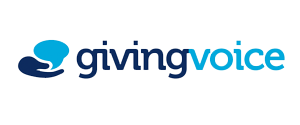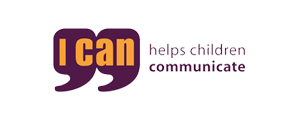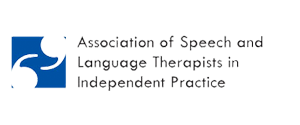Speech and language difficulties in bilingual children
A child is bilingual when they are able to use and understand two languages. Bilingualism is not a language problem. When a child has a language difficulty in both of their languages, this is classed as a language problem. When a child has a language difficulty in English but not their home language, this is not a language disorder or delay. This is a difficulty in their learning of the language or a natural part of learning a new language that can be helped with teaching and increased exposure to the new language.
Our speech and language therapists are able to assess bilingual children for language difficulties and can provide tailored intervention to help the child manage and overcome their language difficulties.
What is bilingualism?
Bilingualism is the ability to use or understand two languages. If an individual is able to use or understand more than two languages, they are multilingual. Learning two languages can seem like quite a complex process for children but it is said that children have the ability to learn two languages just as naturally as they can learn one. Children will usually have a home language as their first language and an additional language (usually English for bilingual children in the UK) that they will learn through school or community input.
How does language develop in bilingual children?
When a child is exposed to two languages, their learning process will usually fit into a particular developmental timeline:
Silent period
Firstly you may recognise a period of continued use of home language before they begin to attempt to use the additional language. This is due to exposure, the child will find that they are able to express themselves better in their home language so will continue to use this. There may then be a silent period. A silent period is where a child will not seem to talk in particular environment e.g. school. A bilingual child's silent period may last up to around 6 months, but this is not something to worry about as this is the time the child is taking to adjust to their new environment and the new language. The child may then begin to repeat simple words or short phrases, these are usually based on their routine.
Interference and code switching
As a bilingual child's ability to use short phrases effectively grows, there will usually be an increase in confidence to communicate. The child will then begin to use more phrases but there may be a period of interference and code-switching. Interference is when your child may use the grammatical rules of their home language in their additional language. Code-switching is where the child may use words from the two languages within one sentence, children may do this is if they are unsure of a word in their additional language. Interference and code-switching are both normal processes and are part of a child learning an additional language.
Basic social communication
After two years of exposure to the additional language the child should then have the basic social communication to interact with friends.
Language proficiency
Language proficiency usually begins between 5-7 years of language exposure.
How do I know my bilingual child has language difficulties?
Bilingualism is not a language problem, many bilingual children will experience many benefits of being able to speak two languages. Children are usually able to learn two languages as efficiently as they are able to learn one. If a child has a language difficulty in their home language they will usually have a difficulty with their additional language. This is when you should speak to a speech and language therapist as there may be underlying language difficulties that they can help with.
Language difficulties can be either receptive (understanding) or expressive (production), it will be useful to note what difficulties you have observed in the home language in order to inform the speech and language therapist of this. The speech and language therapist will investigate both the home language and the additional language to identify whether or not your bilingual child has language difficulties.
Speech and language therapy assessment for bilingual children
Our speech and language therapists can assess your child’s speech and language skills in both of their languages in order to diagnose a language problem in bilingual children. If required, the assessment process will be carried out alongside the help of a translator. The translator will be briefed before the assessment in order for the speech and language therapist to give them specific instructions on how to gain the best outcome from a speech and language therapy assessment. A family member who is a proficient speaker of both the child’s languages can be used during assessment if an interpreter is unavailable. A family member can be useful in situations like these, however it is advised that a translator or interpreter trained in speech and language is the best tool for these kinds of assessments.
Assessment can be done by using a variety assessment tools, including information from parents and other professionals. Our language assessment for bilingual children will include assessment of your child’s language ability in both languages, this is to identify whether your child has a language difficulty or whether the language difficulty is due to the natural process of learning two languages.
The result of the assessment process will establish:
- Identification of the type of language problem e.g. expressive or receptive.
- Identification of the language or languages the problem occurs.
- Identification of the impact of the language difficulty on the child’s functioning.
- Identification of any speech difficulties.
- Acknowledgement of any personal goals from the family and the child.
Assessment process for bilingual children:
- Referral
- Initial assessment: appointment/ telephone/ questionnaire
- Advice and monitoring
- Full assessment:
- Case history
- Parental interview
- Child assessment- speech abilities, receptive/expressive language abilities, social communication skills, attention control and the child’s goals, school and speech
- Discussion with parents
Speech and language therapy for bilingual children
Speech and language therapy helps to increase both receptive and expressive language abilities in bilingual children as well increase their potential for successful communication.
Suitable therapy for bilingual children who have language difficulties, includes:
The therapy programme will be tailored to each child dependent on their individual needs in context of their goals. All treatment options will be discussed with you in depth before commencing with intervention. Therapy can be administered in a time and place to suit you and the child's needs.
Benefits of speech and language therapy
Speech and language therapy can be extremely beneficial for any children who have language difficulties, including those who are bilingual. It can help children manage or overcome their language difficulties through the use of different strategies and exercises to improve language ability. Benefits of speech and language therapy for bilingual children include:
- Increase in language understanding and development.
- Increase in successful communication.
- Increase in self esteem.
- Increase in activity and participation in daily activities.
- Increased social and emotional wellbeing.
Speech and language therapy can provide therapy to increase your child’s ability to understand or use language effectively. Speech and language therapy can work on increasing your child’s ability to participate in activities that require them to use their language skills. Therapy can be carried out directly through the speech and language therapist or parent. Our speech and language therapists work to provide a holistic approach to therapy by providing the most effective approach to therapy.
Multilingual
Some children will be able to speak more than two languages. This is multilingualism. Multilingual children may also have language delay or disorder. This occurs in a similar pattern to bilingualism. We are able to identify a language difficulty in multilingual children when they have a difficulty in all their languages, including their home language.
English as additional language services for schools
Our speech and language therapists can provide assessment and treatment for schools with children who have English as an additional language. SLT for Kids can help schools identify whether children are unable to communicate due to their lack of understanding and enrichment within the English language or whether the child has an underlying language issue.
This can help schools to define whether children learning English need specialist input from speech and language therapists to improve their language delay or disorder or whether the child still requires input from a teacher of English and more language enrichment. English teaching is not a service we can provide as it is not part of our expertise, however our speech and language therapists are able to assess a child with English as an additional language in order to identify the needs of the child and what intervention would be best for them.
Summary
Bilingualism is when an individual is able to use and understand two languages. Bilingualism is not a language problem itself, however some children may have language difficulties in both languages. In this case, our speech and language therapists at SLT for Kids are able to provide assessment and treatment to increase a child's language use or understanding as well as increase confidence and self-esteem when communicating. If you would like to make a referral to our speech and language therapists please email office@sltforkids.co.uk or call 0330 088 2298.
What to do next
Our speech and language therapist will provide a complete assessment and ongoing therapy for speech or language difficulties in bilingual children. If you think that your bilingual child has a language difficulty, particularly in their home language, or have been alerted to this from school then please email office@sltforkids.co.uk call 0330 088 2298.








